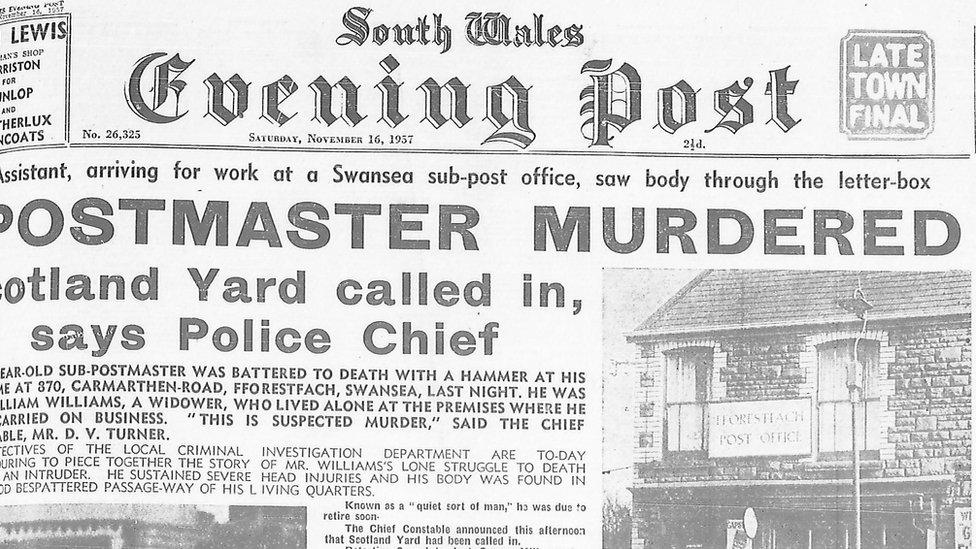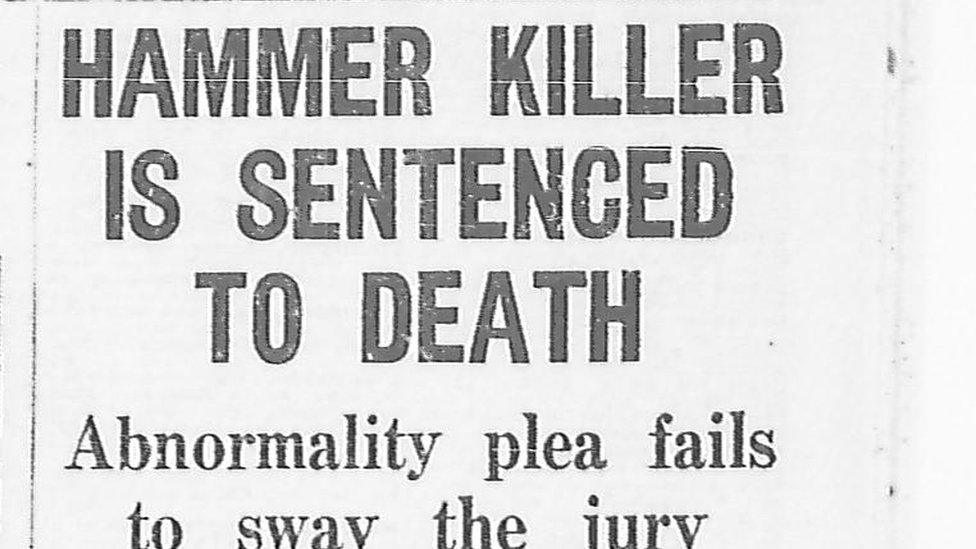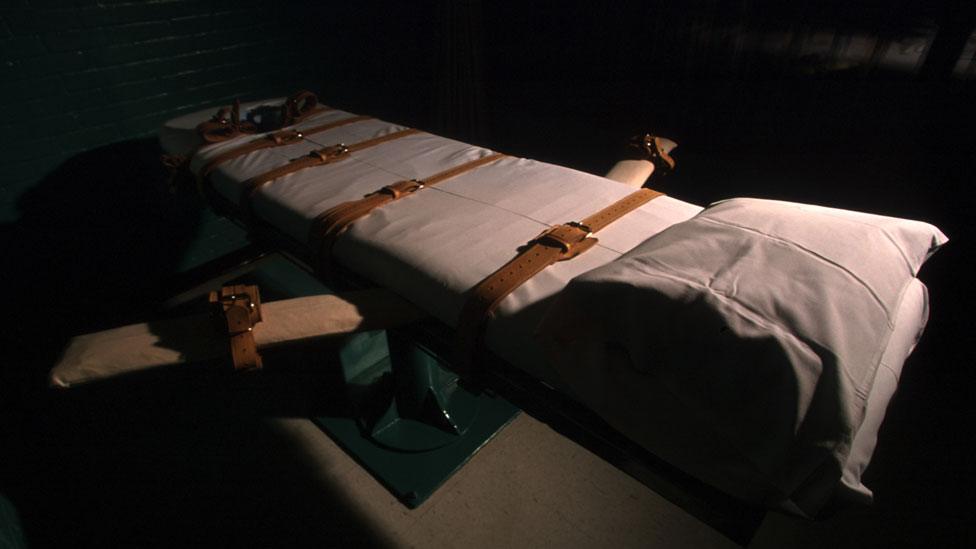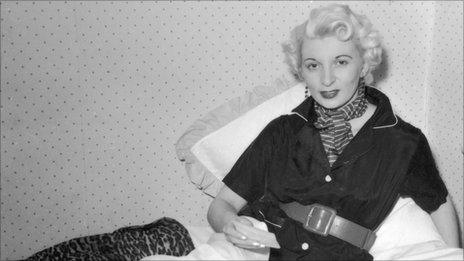Vivian Teed: 60 years since last man hanged in Wales
- Published

On the night of Friday 15 November 1957, 24-year-old Vivian Teed broke into the sub-post office in Fforestfach, Swansea.
He did not expect to be disturbed, but was almost immediately accosted by the postmaster, 73-year-old William Williams.
After a struggle broke out, Teed attacked Mr Williams with a hammer he had brought along to force an entry, before fleeing empty-handed.
Both men would lose their lives - Mr Williams from 27 blows at Teed's hand, Teed six months later on 6 May 1958, as the last man to be hanged in Wales.
On the surface, the murder was an open and shut case, but it remains controversial and arguably hastened the abolition of capital punishment in the UK.
After the briefest of manhunts, the hammer - which had snapped with the ferocity of the attack - was traced to a works toolbox belonging to Teed's father.

Footprints in Mr Williams' blood were matched to Teed's shoes, and blood splatters were found on his trousers and coat.
Teed had even confessed his crime to a stranger in a local café.
Yet what everyone who had met Teed said was that he was not in his right mind.
At his trial on 17 and 18 March 1958, his barrister, F Elwyn Jones, argued: "The defence is not that this man did not kill the unfortunate postmaster. That tragic fact is true.
"The defence is that when the accused did it he was suffering from abnormality of the mind which impaired substantially his mental responsibility for what he did."
One of nine children, Teed had two previous convictions for violence, had been thrown out of the RAF, and had a history of psychopathic personality disorders.
The jury twice failed to reach a verdict, before eventually convicting Teed after receiving additional direction from the judge, who duly passed sentence of death.
An appeal the following month failed, and Home Secretary Rab Butler refused clemency, despite a 16-page petition.

Mark Davies, head of criminal law at Goldstone Solicitors in Swansea, believes it may well have been measures designed to make the death penalty harder to implement which actually did for Teed.
"Teed was the first person in the UK to be convicted under the 1957 Homicide Act, which narrowed capital murder to just six categories, one of which was 'in the course or furtherance of theft'.
"His case fitted so neatly into this, that I don't believe the jury gave due consideration to the Act's other new provision, the introduction of the notion of diminished responsibility into English law.
"Teed's might not have been a miscarriage of justice in the same way as Timothy Evans or Derek Bentley, but it fed into the growing unease over the morality of hanging."
According to author Geoff Brookes, who wrote about the case in his book "Swansea in the 1950s" and for his local history website, nowhere was that unease felt more acutely than in Swansea.
"It was a town torn. On the one hand, a pillar of the community known affectionately as Old Banky had been brutally killed, and on the other the man who was to hang for it wasn't in his right mind.
"A petition of 1,000 signatures was gathered around Swansea, but there was to be no clemency.
"On the morning of the execution, just a handful of people stood quietly outside Swansea Prison, a stark shift in public opinion from the first hanging there 100 years before, when baying crowds had rented space on top of carts to get a better view."

In researching his book, Mr Brookes came across a previously unseen note in the West Glamorgan Archives, from the chaplain of Swansea Prison, describing the chillingly cold details of that morning.
"The day before the equipment had been thoroughly tested by the governor and the engineer. Then on 6 May all staff had to be on duty by 06:45 BST.
"Breakfast to the condemned cell at 07:30, chaplain to attend at 08:00.
"The governor enters the condemned cell with the executioner at 08:58. The execution takes place at 09:00, with the medical officer's inspection of Teed at 09:02 and the burial at 12:05."
At the bottom of the order was a handwritten note addressed to the prison chaplain from the governor.
"As soon as executioner enters, stand up and move away from table in case there is a bit of a do," it said.
"When prisoner leaves the condemned cell for the execution chamber follow. If he wants you to say a prayer do so - if he wants you to accompany him do so.
"If not keep clear of those engaged in this work won't you?"
Hanging for murder was finally suspended in 1965 and abolished in 1969, (1973 in Northern Ireland).
It remained on the statute books for some offences until 1998, but in 2004 the UK acceded to the 13th Protocol of the European Convention on Human Rights, which prohibits the death penalty in all circumstances.
- Published11 February 2018

- Published11 April 2017

- Published4 August 2011
